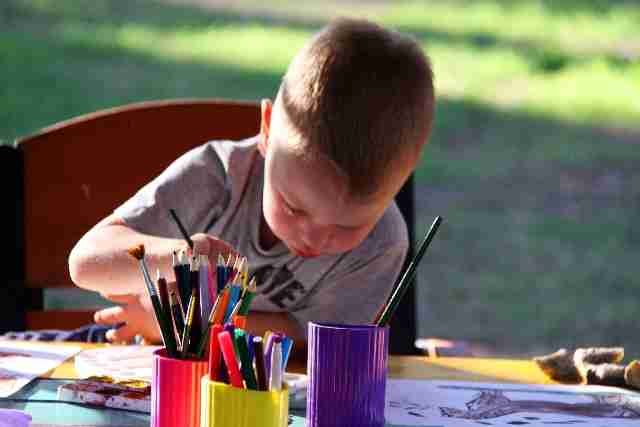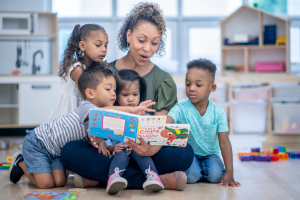Table of Contents
What are the benefits of play? Let’s talk about it. Play is essential for healthy development in children. It helps them learn important skills that they will use throughout their lives. Play helps children learn how to interact with others, how to take turns, how to problem solve, how to manage their emotions, and much more.
Play is a vital part of a child’s development and can help them develop strong social skills, creativity, and confidence. Through play, children can explore the world around them and build a strong foundation for their future. Playing also allows children to develop physical coordination and strength, as well as the ability to think independently, in a safe and fun environment. With the right guidance, play can lead to a lifetime of positive outcomes. The benefits of play are countless and can help children to become well-rounded, successful adults.
What is Play?
Play is the act of engaging in a relatively purposeless activity for enjoyment or amusement. It’s how children and even animals explore, discover, and learn about their world. Children learn best through play because it is the natural state of childhood. It is how they naturally explore and interact with their environment. When we use play to learn and educate, we use a child’s natural enthusiasm, creativity, and imagination.
Play is also self-directed and social. When children engage in play, they are directing their own attention and are exploring topics that are important to them. Play is self-directed because children are in control of what they choose to do and when they choose to do it. It is social because it provides children with opportunities to interact and collaborate with others.
Benefits of Play
Play has many benefits, including physical, cognitive, emotional, and social skills.
Physical Development
Play is a great way to help kids develop physical skills and coordination. Being able to run, jump, and throw, as well as ride a bike, are all skills that are essential for kids to have. By playing games that involve running, jumping, throwing, and other physical activities, kids can strengthen the muscles they will use in these activities. Yoga dice are an excellent way to give your children some guidance while allowing them to control the game.
Cognitive Development
Play has been linked to important cognitive skills such as creativity and problem solving. Being able to think creatively is a great skill for kids to have in their adult lives. They can be more innovative and come up with new ideas that can change the world for the better.
Emotional Development
Play has also been linked to important emotional skills. Kids who are able to regulate their emotions are less likely to have behavioral issues when they are older. They will also be better able to form healthy relationships with friends and family members.
Social Skills
Finally, play has been linked to social and communication skills. Kids who are more confident in their abilities to communicate are more likely to succeed in their education and in their future careers. Playing role playing games with children and guiding them if they struggle on how to respond during the conversation or situation is one way to help kids practice social skills.
Play-based Learning
Play-based learning is the concept of learning through play. In other words, kids learn through playing and exploring. There are many benefits to play-based learning. It allows kids to be creative and imaginative. They can explore topics that are important to them and are interested in. Kids can also learn a variety of skills through play. They can learn how to problem solve, how to cooperate with others, as well as gain communication and social skills. When kids engage in play-based learning, they are more likely to retain the information they are learning.
Guiding Play
The best way to guide play is to be an active and engaged observer. In other words, you should be watching your kids play, but you should also be engaging with them. You can do this by joining the kids in their play or by observing and asking open-ended questions to get them thinking. Provide materials and toys that encourage kids to engage in active play or materials for kids to be creative. There are a variety of ways you can do this, including letting them create their own art or letting them create their own rules for games. I’ve even let my kids just have the recycling bin, and they have created robots and animals.

Studies on Benefits of Play
There have been multiple studies done proving that there are multiple benefits of play for children. Results from research carried out at the University of Arkansas demonstrate that taking part in play activities regularly can enhance a child’s language, problem-solving, and math abilities. Other studies also determined that play helps children build social skills and helps them to organize their thinking and make decisions. Play additionally offers physical advantages for children, e.g., increasing their fine and gross motor skills. There is also evidence that playing can aid in stress reduction and bring families closer together. The American Academy of Pediatrics concluded that play is fundamental to a child’s physical, social, emotional, and intellectual development.
Examples of activities that promote play
Letting kids explore and interact with their environment can help them learn and develop important skills. This can be as simple as letting them explore a new place or letting them explore the toys they already have.

Allowing kids to be creative is another way to promote play. Creative play encourages kids to use their imaginations and engage in creative problem solving. Creative play can be as simple as letting kids use crayons and paper to draw their own pictures or letting them use paint on a blank canvas.
Free play is an unstructured form of play that allows kids to explore their interests freely without any rules. While exploratory play can involve some structure, like letting kids pick which toys they want to explore, free play has no structure. This can be helpful for kids who are having difficulty engaging in other types of play.
Imaginative play is a type of play that allows kids to pretend to be someone or something else. This can help kids to develop their communication and social skills while having fun.
Object play is another type of play that allows kids to explore their world. This can be as simple as letting kids play with sand and letting them create their own sculptures. Check out this post on playing with oobleck!
Play is an essential part of childhood. It helps children learn important skills and explore their world. Through play, kids can develop physical, cognitive, emotional, and social skills. The benefits of play are endless, and it can help kids to become well-rounded, successful adults.
What is your favorite activity to do with your children? A household favorite here lately is chess!
Check out this post Debunking the Socialization Myth



